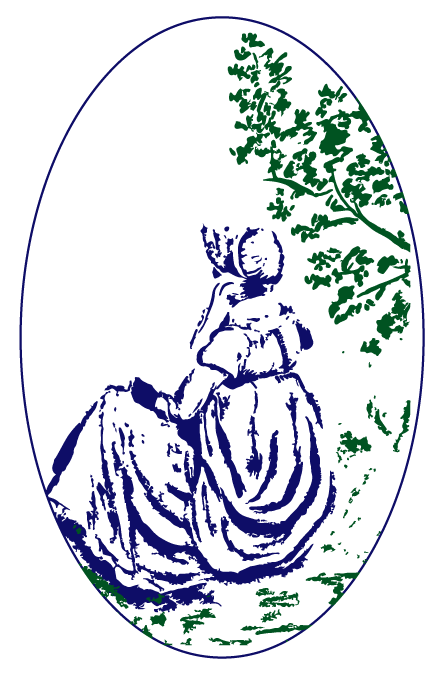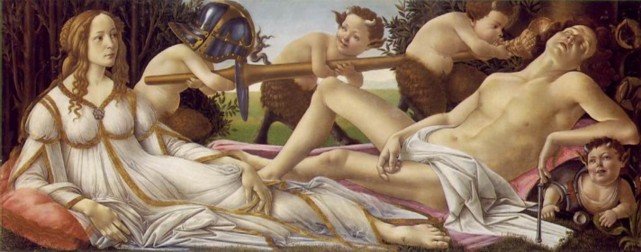The Fortunate Fall: Jane Austen’s Pride and Prejudice, a chapter in Erotic Faith: Being in Love from Jane Austen to D. H. Lawrence
by Robert M. Polhemus
The University of Chicago Press, 1990
Reviewed by Carol Ann Krug Graves
Erotic Faith is a fascinating study of love in British fiction from the early nineteenth century through the early twentieth century – from the “rational love” of the novels of Jane Austen, to the “repression” of Charlotte Bronte, the “fixation” of Dickens, the “politics of love” of Trollope, to the “sex life” of D. H. Lawrence. Polhemus defines erotic faith as “an emotional conviction, ultimately religious in nature, that meaning, value, hope, and even transcendence can be found through love – erotically focused love, the kind of love we mean when we say that people are in love.” He further explains that he uses “the term ‘erotic’ not in its narrow sexual connotation but to indicate broadly libidinous desire and a passionate, sometimes romantic, relationship with, affection for, or attachment to another person. Men and women in the hold of erotic faith feel that love can redeem personal life and offer a reason for being.”
In this limited space, I can’t begin to do justice to all of the interesting ideas discussed in The Fortunate Fall, so I will just whet your appetite with a few of the highlights.
The “fortunate fall” of the chapter title refers to Darcy falling in love with Elizabeth. A distinction is made between the terms “love”, “in love”, and “falling in love”. In Pride and Prejudice, Darcy is said to “fall in love” with Elizabeth. Although it is not at all clear that Elizabeth “falls in love” with Darcy, by the end of the novel, she does “love” him. Many of the possible connotations of the term “falling in love” – something involuntary, loss of control, attraction of erotic gravity, abrupt and drastic change – suggest that falling in love could be more dangerous for a woman than for a man, especially in an era of unequal status of men and women. Comparing the plot of Pride and Prejudice to the Cinderella or Pamela patterns of works of earlier writers, Jane Austen’s novel stands out because it is for the liveliness of Elizabeth’s mind, for her energetic intelligence and her individuality, that Darcy falls in love with her.
Throughout Erotic Faith, the novelists’ representations of love are also related to representations of love in painting from the Renaissance to the twentieth century. An interesting analysis of Botticelli’s Venus and Mars is presented, comparing the symbolism of the painting to the function and nature of love in Pride and Prejudice. In the painting, “[l]ove has disarmed Mars, put him to sleep and become the focal point of being. He seems to have fallen in love. The picture fuses elegant desirability, feminine power, and a pointed, ironic sense of the ridiculous in order to control and satirize brutishness and honor civilized life.” Likewise, in the novel, the “proud churlishness” and “male chauvinism” of Darcy are melted by love, and love, acting through Darcy, disarms the predatory and plundering Wickham.
In a discussion of the father-daughter relationship of Elizabeth and Mr. Bennet, Pride and Prejudice is described as “also the love story of a young woman’s successful psychological transference from parent to mate.” Darcy’s original pride and prejudice are likened to similar qualities in Mr. Bennet’s character that Elizabeth, her father’s favorite, “might resent but could not directly rebel against.” Her later feelings of gratitude and esteem for Darcy mark “a transference of respect and love from Bennet”.
Dancing in the novel always has erotic connotations. Austen “uses the custom of dance as occasion, means, and metaphor for amorous relationship.” Early refusals to dance by both Darcy and Elizabeth, and “their obvious suitability and aesthetic rightness as mutual partners” when they finally do dance foreshadow the progression of their love relationship. A comparison of Elizabeth, Lydia, and Charlotte shows us “not only the kind of dancing, but _ the kind of love Austen values.”
Polhemus argues that the expression of the passion of modern individualism in Pride and Prejudice reflects Austen’s belief that “true love is discriminating, and those who cannot discriminate cannot love.” Elizabeth and Darcy, and Jane and Bingley are the successful lovers because they love other individual beings. In contrast, for Lydia, one handsome officer is interchangeable with another. Wickham is ready to seduce anyone, if it can improve his financial situation or effect revenge. Collins transfers his “affections” from Jane Bennet, to Elizabeth, and finally to Charlotte, all in a matter of days. “Abstraction, in this novel, is love’s enemy, particularity its friend.”
Polemhus refutes R.W Chapman’s famous remark about Jane Austen’s novels that “[T]hey have nothing to say about the great events that were shaking Europe”:
Everyone now sees how wrong that is. The growth of individualism and the emergence of romantic love as the heart of private life and a popular expression of faith were matters of world-shaking importance, and Pride and Prejudice has profound things to say about them. The book offers a challenge and an alternative to conventional notions of what constitutes “great events.” “Great events” may be the great events and their meaning in women’s lives as well as in men’s lives; and novels as well as battles could cause “Europe” to be shaken. … If the great historical fact of European and American life in the latter half of the eighteenth and in the nineteenth century is the sweep of individualism, the domestication of history which novels enact and the insistent representation of love at the center of things must surely have important consequences.
Janeites should appreciate the insights into Austen’s ideal of rational love, her allusions to issues of erotic feeling, her treatment of familial relationships that shape love and desire, her treatment of the problematic nature of passion, and her conception of the different experiences of love for the two sexes presented in Erotic Faith.

